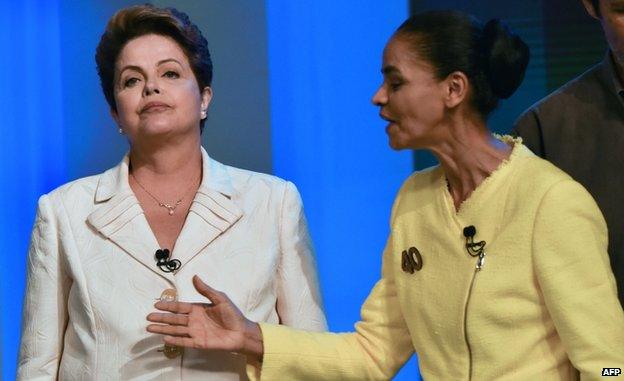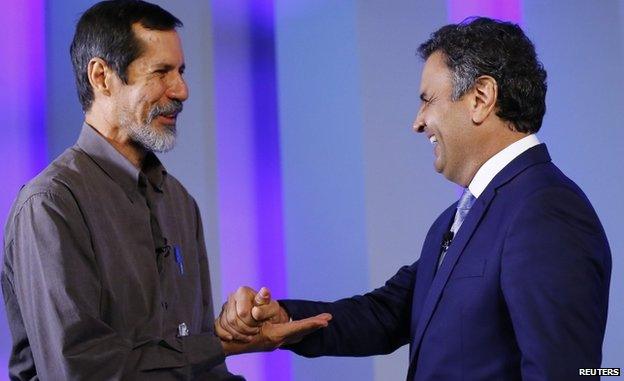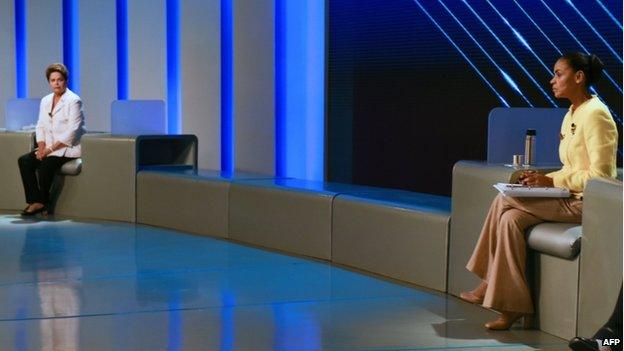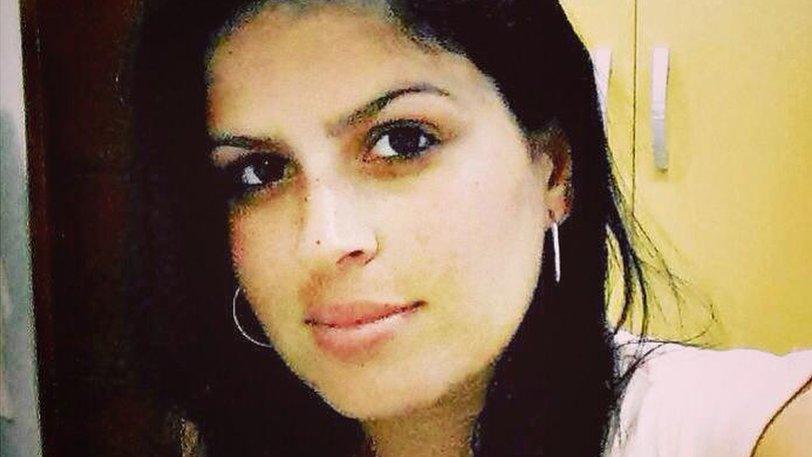Brazil elections: Presidency still up for grabs after last TV debate
- Published
Politics is often compared to a soap opera but, in Brazil at least, it seems it is not held in such high esteem or given the same prominence.
Even though this was the last and probably the most important of the pre-election debates, the popular soap - Imperio - took precedence on the host Globo TV channel.
This meant the political drama didn't get under way until 23:00 local time - an important insight, cynics might argue, into who really runs Brazil.
So, by the time they got down to business, the candidates were exhausted. It's been a long and tiring campaign, especially for the two leading figures, President Dilma Rousseff and Marina Silva.
Silva, whose once healthy lead in the polls has steadily slipped in recent days, looked particularly tired of giving the same answers about her commitment to keeping the government's social welfare programmes.
Incumbent President Dilma Rousseff (L) faced challenger Marina Silva in the final debate before Sunday's vote as Wyre Davies reports
Rousseff again portrayed her former ministerial colleague as inconsistent and weak on some major issues.
But the president, too, rarely smiled and seemed irritated by the steady early questioning from her opponents about what she did or didn't know about a huge corruption scandal at the state controlled oil company, Petrobras.

The body language between Rousseff (left) and Silva was almost hostile at times
The unnecessarily complicated format of the questioning process didn't help and the moderator was frequently bamboozled by his own company's rules.
One could normally conclude that, with just two days to go before elections and when most of the major arguments have been rehearsed and repeated many times, few people would be changing their voting intentions after Thursday's debate, such was the lack of real scrutiny and interrogation.
But this is Brazil and the opinion polls have been bouncing all over the place - often for reasons that leave this correspondent none the wiser.
The one candidate who was visibly smiling at the end of proceedings was the former governor of Minas Gerais and Senator, Aecio Neves.
For so long languishing in a distant third place, the business-friendly candidate from the Social Democratic Party looked sharp, pushing Rousseff hard on the faltering economy and corruption.

Aecio Neves (right) appeared positive as he took part in the debate
None of the leading candidates performed well enough or landed enough punches to merit an outright first-round victory on Sunday, and any levity or controversy came from the minor candidates.
Dilma Rousseff's mantra is consistent but effective - that only another four years of PT government under her will elevate millions more Brazilians out of poverty through generous welfare programmes including the bolsa familia scheme (family allowance).
The body language between Rousseff and her two leading opponents was almost hostile at times, and it just remains to be seen which of them she's most likely to face in a run-off vote at the end of the month.

Dilma Rousseff (left) and Marina Silva rehearsed well-known lines
By then, crucially, there should be more fairly allocated advertising time to whoever her opponent is - but please, no more ridiculously late debates.
- Published3 October 2014

- Published28 September 2014
- Published20 August 2014
- Published4 June 2014
- Published27 August 2014